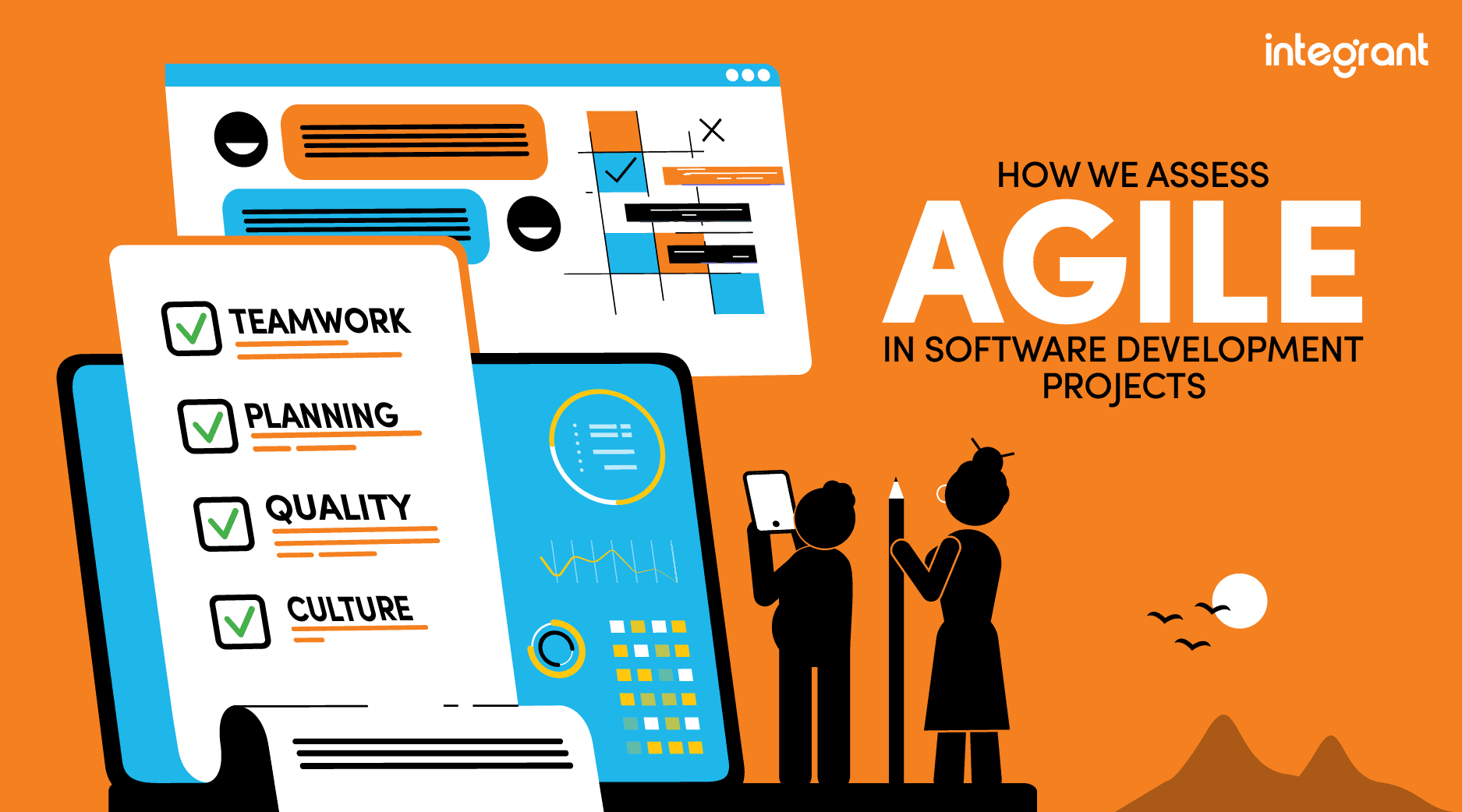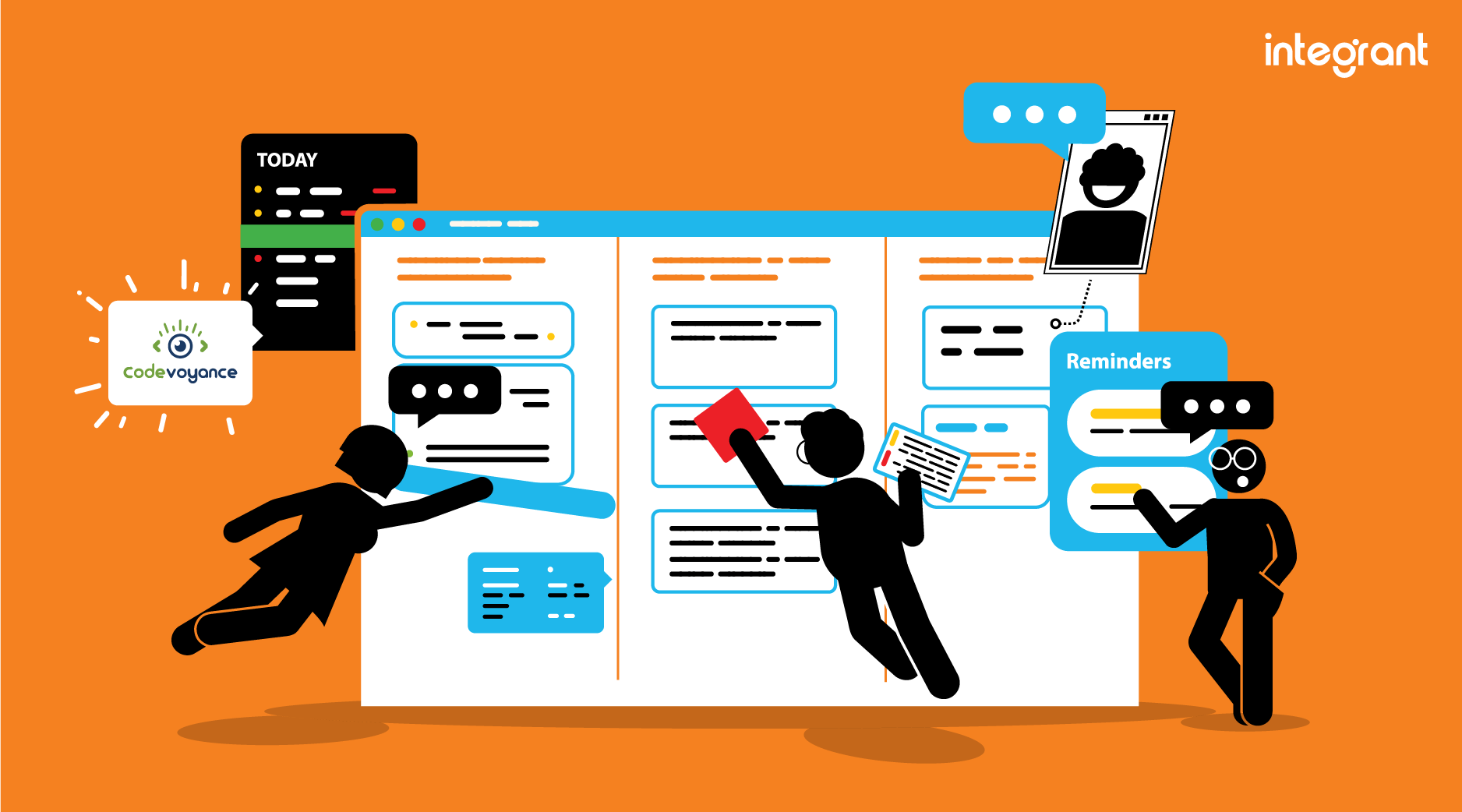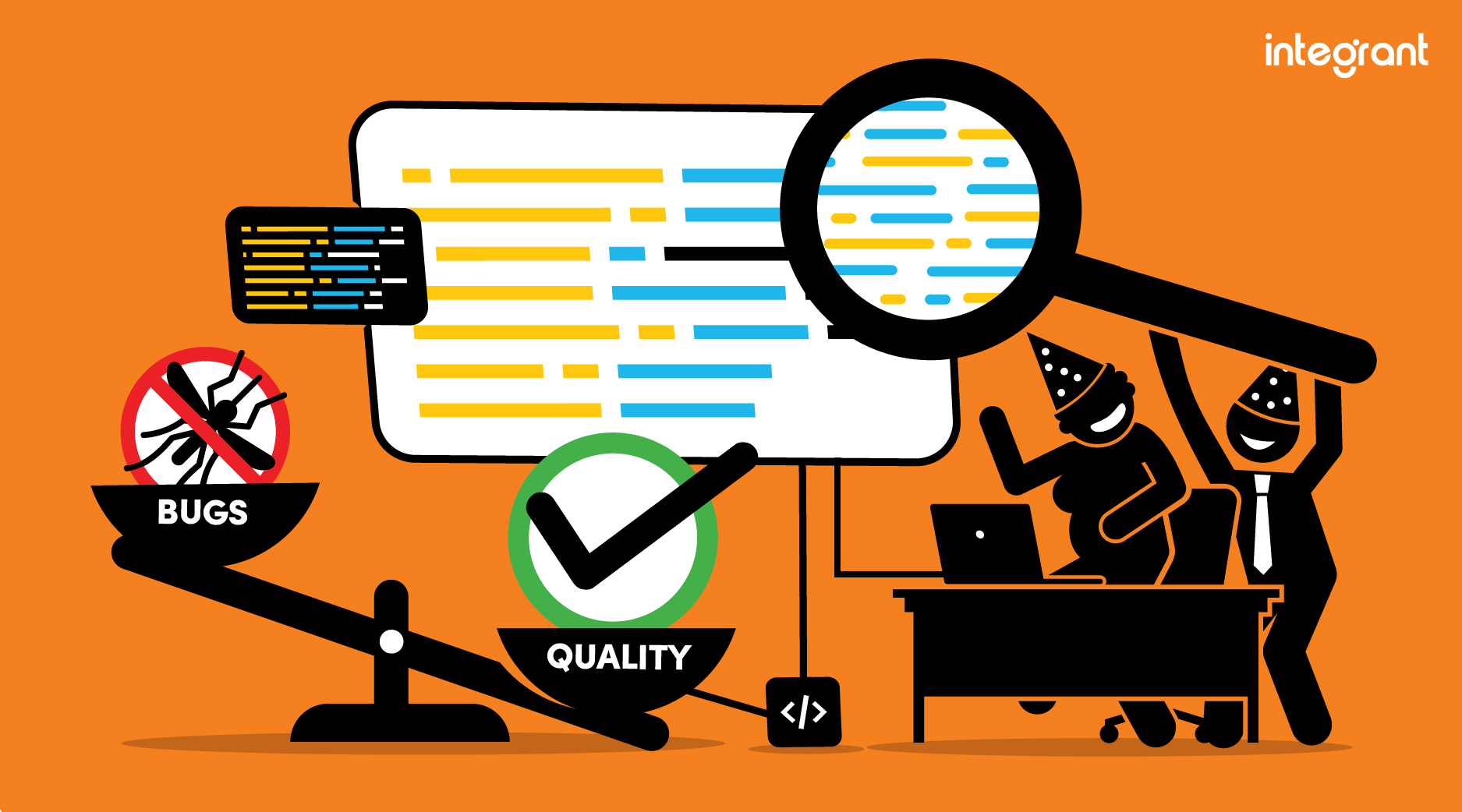Integrant’s Agile Assessment Process

According to recent studies, 71% of companies are adopting Agile.
Any company can claim to be functioning in a successful Agile environment, but our scrum teams at Integrant continues. At Integrant, we live and breathe Agile. So much so, that you can find hints of Agile threaded into every aspect of our company.
Agile methodology confronts challenges regarding unknown or changing requirements and timeline discrepancies with higher productivity and faster time to market. But how does a company ensure these things are going to plan? One Integrant scrum master is here to help explain it all.
Why Perform an Agile Assessment?
A scrum team works collaboratively to explore what needs to be done to improve efficiencies and implement action items based on interviews and data. The only way to ensure that this collaboration can go to plan is by continuously assessing the Agile process overall per project and collectively as a company.
One of the main benefits of conducting an Agile assessment is to have alignment between all parties: the team, the customer, and any stakeholders. This shared understanding means that all parties have the same perspective on team and project strengths and challenges. As a result, everyone can work together to tackle the same challenges rather than work independently based on their individual perspectives of what might be going wrong or right.
While there are plenty of resources online to help companies create Agile surveys, at Integrant, we use our Agile mindsets to assist in creating our own unique surveys tailored to a project or client's specific needs.

To be successful with these surveys, it's important to be able to identify points of your project that will require an Agile health check-in.
Some ideal times to carry out Agile assessments are:
- Within the first 90 days of the start of a project
- Anytime the team experiences significant turnover
- As routine maintenance throughout the software development lifecycle
At Integrant, the scrum master goes through a carefully curated step-by-step process to assess the success of the Agile ecosystem.
Who Carries Out the Assessment?
The Agile assessment is typically led and managed by the scrum master. The scrum master is responsible for focusing on the success of the team, product owner, process, and environment. A large part of this responsibility is being able to assess the Agile process appropriately and accurately.
The Agile Assessment Process
The way our scrum master has built out our Agile assessment process is by dividing up a survey by individual areas of assessment, followed by survey-style questions for each area. Each area being assessed serves a unique and critical role in creating a successful outcome for each software project we work on.
In addition to the scenarios listed above, how often these assessments are carried out will depend on the unique timeline and status of each project. Each project will always receive a baseline assessment at the start of the project timeline to have notes to compare to when the next assessment is completed. It is important to complete these assessments more than once to better keep track of Agile project health.
Teamwork
Without a supportive, functional team, there won’t be a successful outcome. Teams need to be in a collaborative and supportive space that encourages communication.
- Everyone required to go from requirements to the finished system is on the team.
- Team members are willing to work outside their specialties to achieve team goals.
- People are not assigned to more than two teams.
- Team members communicate effectively without undue interference.
- Team members from one team communicate with team members from other teams effectively without undue interference.

Requirements
Requirements are critical to a project's outcome.
But sometimes requirements are unclear, unknown, or change throughout a project's lifecycle. Adequately assessing this area is key to ensuring everything stays clear and driven.
- Teams can start projects with incomplete requirements.
- Non-functional requirements are determined early enough to appropriately influence design and testing.
- Requirements are represented at different levels of detail based on how soon the team expects to implement them.
- The product owner is available to discuss upcoming features and work-in-progress.

Planning
Ensuring that the planning of a project is carefully and thoughtfully completed according to the unique needs of the specific process is critical to agile success.
- Team members, including the product owner, are engaged in the planning process in a way that they can meaningfully and appropriately affect scope and deadlines.
- Technical team members and product owners collaborate in determining what features will be included in the release plan.
- The team knows their velocity.
- There is a highly visible representation of the team's progress within a release.
- Each day, there is a highly visible representation of the team's progress within a sprint.

Technical Practices
Every successful agile environment requires specific technical practices to work efficiently.
- Most code is written using test-driven development (TDD).
- Refactoring is performed whenever needed.
- Technical debt is made visible to both technical team members and stakeholders.

Quality
The need to assess quality speaks for itself. Without assessing the quality of every project and team, transparency can never fully be met.
- The product owner and the teamwork together to ensure that each feature has acceptance criteria.
- All bugs are fixed during the sprint in which they are found.
- At the end of each sprint, there is little or no manual testing required.
Culture
A huge component of a working and successful Agile environment is culture. Without focusing on the culture aspect there are working parts of the agile process that will be lost.
- When faced with a situation where scope cannot be met with the allotted resources in the allotted time, the team's initial reaction is to prioritize and explore tradeoffs.
- The team maintains a steady rate of productivity without being overworked.

Inspection/ Adaptation
Assessing our inspection and adaptation efforts is critical in ensuring that our agile environment is a continuous success and growing effort.
- Sprint reviews are attended by product owners, stakeholders, and team members who provide actionable feedback.
- The team holds retrospective meetings at the end of each sprint in which the team evaluates how they are doing and discusses how to get better.

You can access our full agile survey through this submission form here!
Wrap Up
The more thorough an agile assessment is the better a team can adapt, pivot, and grow towards more successful project outcomes. At Integrant, we are continuously expanding our agile process and developing new ways to assess our environment and adapt to changes thanks to dedicated scrum masters and team members.
If you’re ready to get on board with the agile transformation lifestyle for your next project, contact one of our experts today to set up a free consultation!

